
Throat pain: its causes, treatment and when to see a doctor
Throat pain is a type of infection in your throat that causes pain during talking or eating or swallowing. It is a kind of infection that has happened to us due to some or another cause at some point in our life. Most of us have been suffering from this infection due to cold or acid influx or allergies. Usually, people treat it as a very common infection but this infection can be severe too. Usually, it causes difficulty in eating and drinking but in severe cases swallowing becomes very difficult. This can further lead to weight loss and other severe complications. If you read further you will have a fair share of ideas about its causes and when you should go to see the doctor or what you can do to ease the pain in your throat
Causes of throat pain
There can be several causes of throat pain some of the common causes are:
Infections caused by a virus: some common viruses like croup, the flu virus, or the cold viruses are responsible for throat pain but rare viruses like chickenpox, measles, herpangina, etc are also seen to cause throat pain.
Throat attacked by bacteria: streptococcus is a type of bacteria that usually attacks the throat. This makes your throat swell that creates difficulty in swallowing and speaking. Other bacteria known as arcanobacterium haemoliticum are responsible for throat pain. It can also lead to rashes in the throat. This throat pain is caused by bacteria that are usually treated by antibiotics. In case of strep infections in the throat, it should be treated immediately because if left untreated, it may cause serious damage to the kidney and heart, highlighting potential signs of kidney disease.
Infection that can be caused due to the nasal passage/ sinuses: it can be by bacteria, viruses, or fungi. These are also known as post nasal drip infections. Some of the infected mucus runs back to the throat causing throat infection.
Allergies: this is the most common cause of throat pain. Most people have this as their allergic reaction. There is no specific allergen that may cause throat pain. But the most common causes are pollen, dandelions, mold, dust, and many other similar allergens that cause post nasal drip. This can in turn cause throat pain.
Acid reflux: acid reflux can cause a sore throat that can in turn lead to cough and cold. This is different from all other causes. It is worse in the mornings than at night. This is because the acid from the stomach could enter the esophagus and enter the mouth. This acid can also cause erosion in teeth. Since in night sleep after dinner you do not feel it much.
Irritation can be caused by cigarette smoke, dry air, or chemicals: usually, throat pain always follows cold. When people have a cold they tend to breathe through their mouth. So when they come in contact with chemicals, or smoke, or dry air they inhale it through their mouth leading it to the throat. The pathogen in it causes an infection or the chemicals cause a reaction in the throat.
Laryngitis which is caused by shouting or overuse of your voice box: This is often a subject of concern for people who use their voice as their occupation. People like singers usually suffer this. It causes hoarseness in your voice and it also hurts when you talk.
Post intubation: throat pain can be caused if you have been intubated because of any injury or disease. It includes inserting a tube down your throat so that you can get extra help in breathing. If this is the cause then it will be cured in a day or two. It is a temporary infection.
Surgery: many surgeries that include the throat like thyroidectomy can cause sore throat. Apart from that, other non-invasive procedures involve endoscopy that includes the mouth, throat or the back of the throat can cause sore throat because of infection.
Cancer: This is very rare but it is found that many tumors can also cause sore throat or throat infection.
When to go to a doctor
If you just read the cause it must be very evident that sore throat can be a symptom of very dangerous and chronic as well as it can just be a temporary infection which can go away on its own in a couple of days. So how will you know when to visit a doctor?
In case of throat pain that is accompanied by a rash, it can be caused due to bacterial infection. In that case, you do have to visit the doctor. It is the doctor’s responsibility to decide the antibiotic and its course. If there is a strep infection and you ignore it and leave it untreated it will create more complications leading to weight loss and difficulty in swallowing food.
In case of severe swelling or pain in your tonsils, you are expected to visit a doctor.
Many throat infections lead to post nasal drips. These are the mucus running down your nose. In those cases, it is never serious but if this lasts for more than a week then you are expected to visit the doctor.
Diagnosis
Diagnosis of sore throat depends on the cause of the infection. These causes of infection can be determined by various tests and labs and diagnoses. It is very hard to try to plan for the treatment by looking at the symptoms.
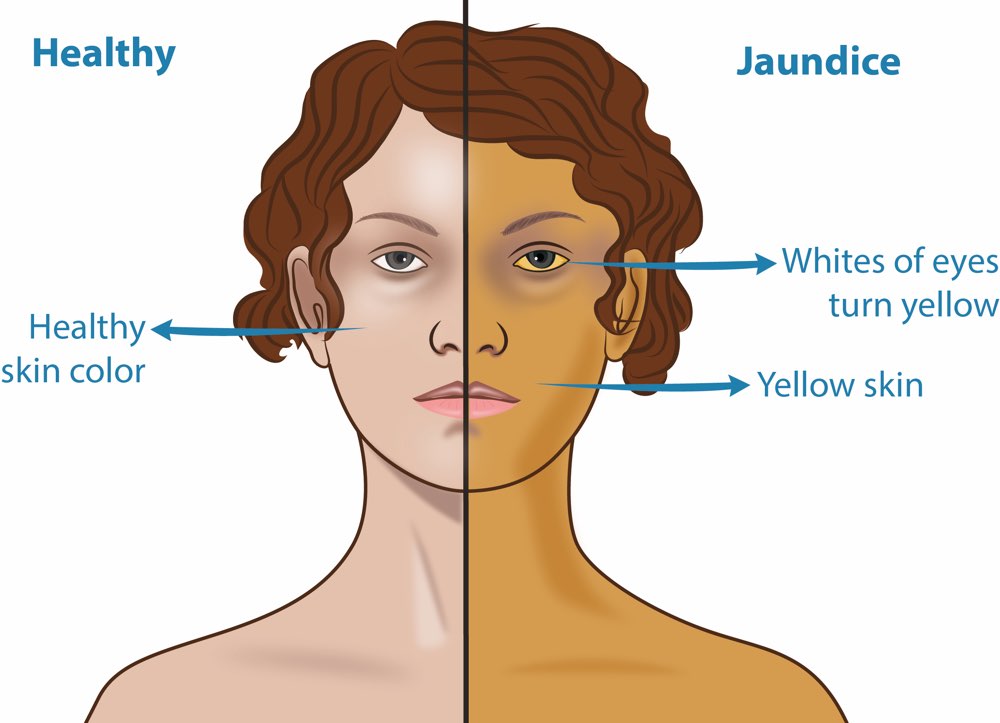
What are the Symptoms and Treatment of Jaundice?
In this article, we examine the symptoms and treatment of jaundice. But first, we need to discuss what jaundice is. The term jaundice stands for the change that occurs in the sclera (white membrane in our eye) turning yellow. It is caused due to the rapid increase in bilirubin, which is yellow-orange bile pigment. Bile is the fluid production in our liver. Bilirubin is also a waste material in our blood. In a report, it is confirmed that about 60 percent of newborn babies in the United States have jaundice. So, it is the major problem in the U.S.(United States).
As we know jaundice is related to the functioning process of the liver. So, we need to maintain our liver in some ways like eating a healthy diet, not drinking too much (or more than the recommendation), exercise regularly, and yoga (which helps our digestion and immune system in making better).
There are three types of jaundice based on their occurrence
Hepatocellular jaundice occurs due to injury or disease in the liver.
Hemolytic jaundice occurs due to sudden breakdown of RBCs or rise in bilirubin.
Any kind of obstruction in the bile duct causes this condition called jaundice.
There are two types of jaundice Based on patient age.
- Adult jaundice, in which the patient is an adult.
- Newborn jaundice, in which patient is newborn
Symptoms of Jaundice
Many studies show that people have jaundice but don’t show any of the symptoms related to jaundice. In this part of the article, we discuss all such cases regarding jaundice symptoms.
It is an accidental case when the person has jaundice but doesn’t show any of the symptoms of jaundice.
The Following are the symptoms related to jaundice in the human body.
The most common symptoms of jaundice include.
- Sudden change in our skin and eye’s white membrane (sclera) color to yellow, Pale stools, Urine goes dark, Itchiness produces in our skin
- Accompanying symptom of jaundice which is due to low bilirubin levels include Fatigue, pale stool, darkness in urine, fever, vomiting. Unfortunately, weight loss, pain production our abdominal
Now, we describe the symptoms as per the basis of infection, if a person is infected then the person shows symptoms such as fever, abdominal pain, itchiness, and flu-like symptoms. If the person isn’t infected then such symptoms occur like weight loss, itchy skin.
If the jaundice is caused by liver-related disease, inflammation occurs.
Here you study the symptoms from many factors after that we study how to treat jaundice? and how to diagnose jaundice?
Treatment of Jaundice
After we discuss, what is the treatment of Jaundice ? We need to know, how is it diagnosed?
The doctor used to check liver disease signs like spider angiomas (collection of a blood vessel near the skin, Palmar erythema (palm and fingertip get on reddish), skin’s brushing.
Thereafter, doctors use urine test, CT scan, and ultrasonography to diagnose the jaundice
In adult persons, jaundice can be cured, by our immune system. If your body has acute viral hepatitis and jaundice cured itself, and your liver heals itself. But if you have an extremely high bilirubin level then it may be a problematic situation for you, because now it uses the treatment of jaundice.
In a new one, it cannot be cured itself; they need good treatment for curing jaundice. Generally, jaundice takes one or two weeks to cure, but in newborns, this may take more time. If your baby is prematurely (born) then it cures itself, but other tests are needed.
Here we provide you information to get treatment of jaundice in newborns.
Provide nutrition (cause of weight loss newborn need some supplement nutrition for growth and immune system), light therapy(in this process newborn is preserved under the light, a special kind of light not sunlight, by which photo-oxidation adds oxygen to bilirubin so, it easily dissolve in the water), Intravenous immunoglobulin (IVIg)(used for a variety of indications in the newborn period, such as alloimmune neonatal thrombocytopenia and adjunctive treatment of neonatal infections), Exchange transfusion(this is the vital process of heredity, and it does by exchanging the blood antibodies from his parents). With these steps, you can get rid of the jaundice problem.
If your liver got a severe problem, jaundice may be accomplished by a serious problem, such as failure of brain function and a tendency to bleed or bruise. Acute viral hepatitis is also a cause of jaundice, generally in young, and otherwise healthy people.
Additional information
I think the above-mentioned help you to understand the jaundice symptoms and treatments. But last one thing, I want to substitute, adult jaundice can cure itself, but sometimes when your bile duct gets blocked this is a serious problem, you need to take advice from doctors. One more thing, want to add for newborn jaundice is a serious problem, but it also a reason for rare brain disease
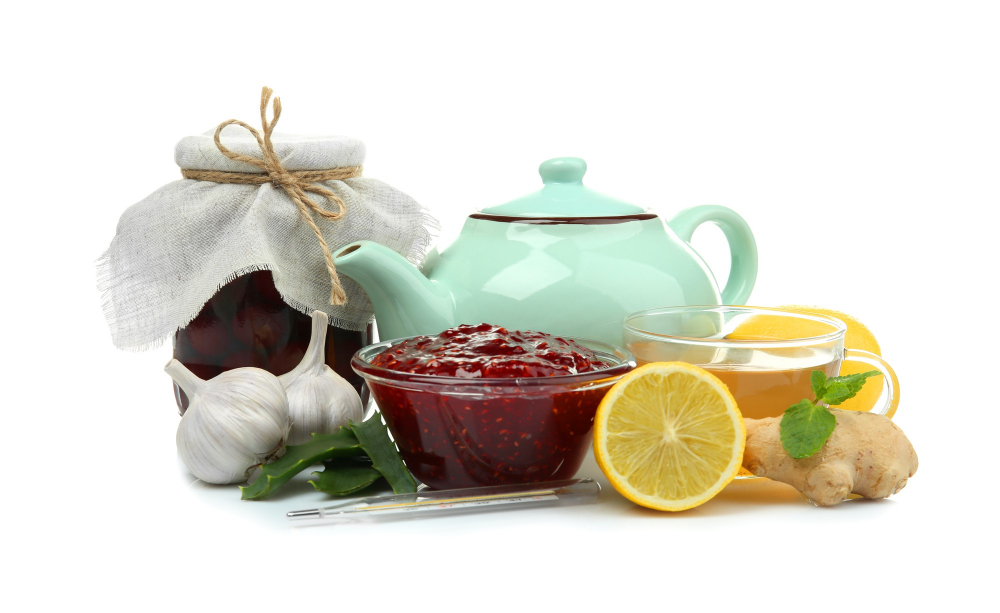
Best 10 home remedies for curing dry cough
Cough is usually treated as an infection of a disease but it is like a necessary evil. It sometimes helps in removing the foreign materials or irritants from your throat. But cough can also occur due to the presence of infection in the throat too. Coughing continuously for a long time can be annoying. So the cure of the cough purely depends on the reason for its presence in the first place. Cough can be caused due to allergies, infections, and other factors too.
Cough can be cured by many allopathic medicines. But using herbs and home remedies can also cure cough without any chemical or medicinal interference in your body. So following are the 10 home remedies that can cure dry cough right at your home.
1.Honey tea
Since traditional times it has been said that honey is known to have many medicinal values as well as therapeutic effects on skin and others. Curing cough is one of the main therapeutic uses of honey. There was a study performed to test the therapeutic effect of honey on children. Many children with nighttime coughing were treated with dark honey and others were treated with a medicine called dextromethorphan. It was found out that dark honey provided more relief to the children than the medicine called dextromethorphan. Although there weren’t a large number of benefits that honey had over dextromethorphan, still it was preferred by most parents over the medicine. To safely consume this to cure cough, two spoons of honey were added to warm water or any herbal tea and consumed at least two times a day. This would effectively cure your cough. But honey is not advised to give children below one year of age.

2.Ginger
When we have a dry cough apart from the unpleasant feeling of coughing there is a lot of pain and discomfort that is felt usually by coughing constantly. Ginger is known to have anti-inflammatory properties which may provide you relief from the pain and discomfort. This may also provide you ease while coughing. Moreover, it is found that the anti-inflammatory substances present in ginger are known to dilate the respiratory tract so that it would ease up the cough. Till now the effects of ginger have just been seen in animals and human beings so more research is needed to be done.
To consume it right, you can add approx. 30g of ginger in a hot water and let it steep for a few minutes before you consume it. For further taste and comfort to your cough, you can also add lemon or honey to it.
But in some cases, ginger tea is known to cause heart urn and many digestive problems.

3.Fluids
Keeping yourself hydrated at this time is one of the main things you have to keep in mind. According to many studies it has been proved that drinking fluids at room temperature can stimulate the running nose and cough and sneezing. It is always advisable to warm up your fluids before consumption. Warming up of fluids can provide relief to your throat as well as can reduce the symptoms too.

4.Steam
Taking the steam can help you to cure mostly wet coughs and mucus and phlegm but in case of dry cough, this has been found effective. You can take a shower in hot water and let the team fill up the bathroom and you can stay in it till your symptoms are reduced. Afterward drinking some cool water or any fluid is encouraged to prevent your body from dehydrating
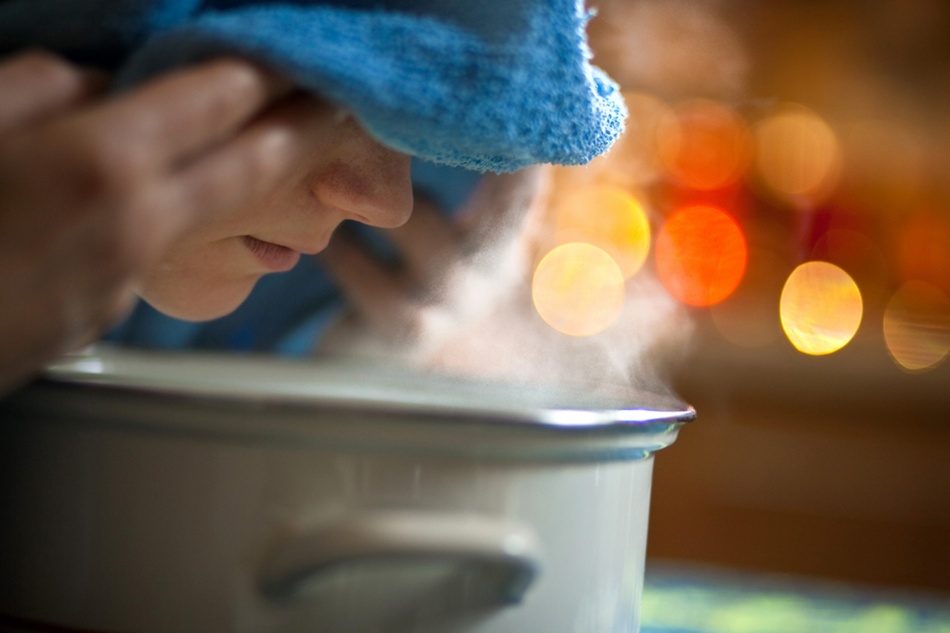
5.Marshmallow root
This is a herb that is used to reduce the pain and discomfort caused by coughing. It does it because it has mucilage in it. Mucilage is a thick coating that the marshmallow root lays on the throat. It is a sticky and thick content. It protects the throat from wearing due to the cough. In a study, the effectiveness of this marshmallow root was proven. The people suffering from cough were given cough syrup which had marshmallow root and thyme and ivy in it. After 10-12 days 90% of those people felt relieved and they did not have a cough anymore.
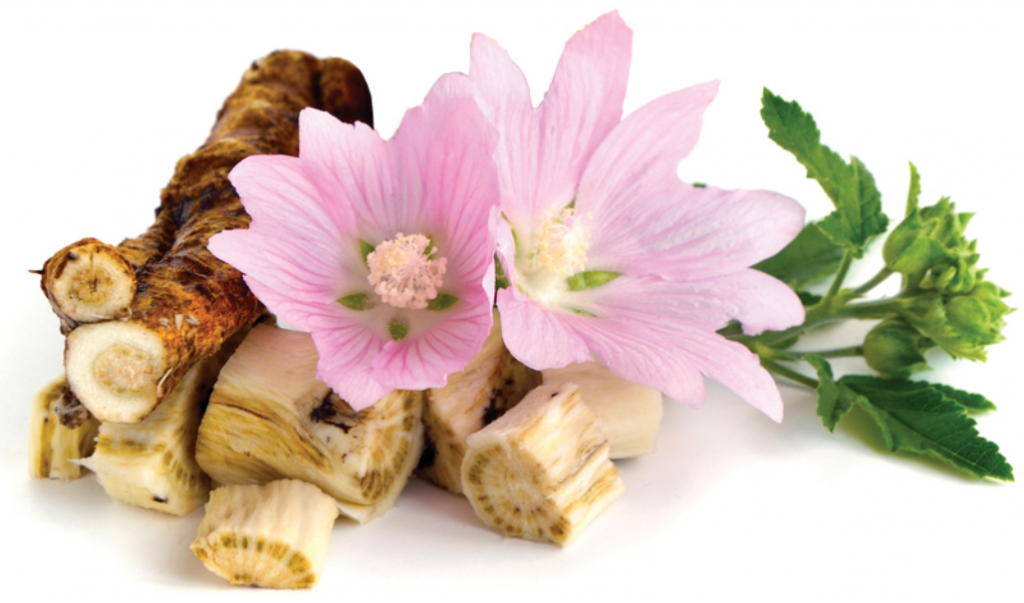
6.Saltwater gargle
It helps in reducing the phlegm in the throat and it, in turn, lessens the urge to cough. Half a teaspoon of salt is added to hot water. And this water is used to gargle so that it reduces the phlegm.

7.Bromelain
It is an enzyme. This enzyme is mostly found in pineapples. Bromelain contains anti-inflammatory properties and is used to treat mucolytic. This nature helps in reducing the phlegm and breaking it down and removing it out of your body. This is an enzyme so it is possible to be allergic to it. It can also interfere with medication and have side effects. Mainly for people who take blood thinners should steer clear of bromelain.

8.Probiotics
This does not directly act in preventing cold but it plays an important role in improving your immune system. If your immune system is strong your immunity will help in fighting all the allergens infections and all other causes of your cough. Out of all the probiotics, lactobacillus is one of the best probiotics that helps in preventing the common cold and cough, etc. Some medications are rich in this lactobacillus that is readily available in all drug stores but in the case of home remedies, you should consume dishes like kimchi, yogurt, miso soup, etc.
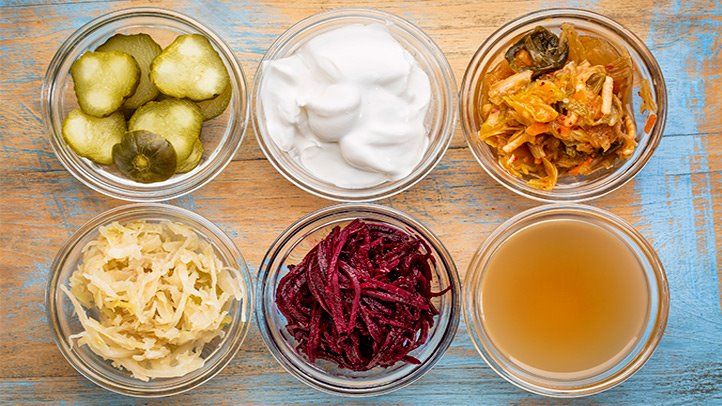
9.Dietary changes for acid reflux
Acid reflux is one of the main causes of cough. You can easily reduce cough by reducing acid reflux. You can reduce acid reflux by stopping the intake of this kind of food which stimulates acid reflux. These kinds of foods are alcohol, chocolates, caffeine, onion and garlic, fried and fatty food.
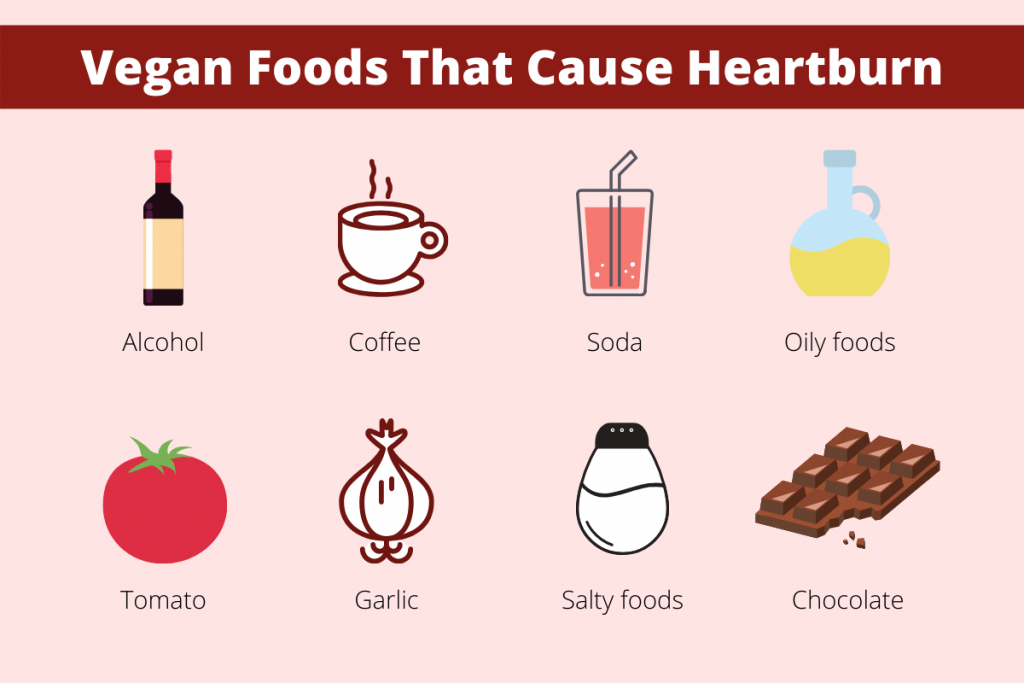
10.Slippery Elm
This is a traditional method of north America. The people there traditionally used to consume the bark of this slippery elm tree to cure dry cough and common cold.










